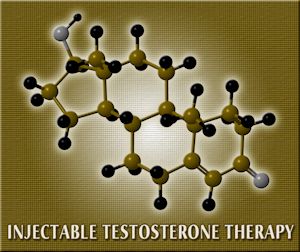Introduction to Human Growth Hormone
Human Growth Hormone (HGH), also known as somatotropin, is a peptide hormone that stimulates growth, cell reproduction, and regeneration in humans and other animals. Naturally produced by the pituitary gland, HGH plays a crucial role in childhood growth and continues to have important metabolic functions in adulthood. However, its use beyond medical necessity, particularly in sports and anti-aging treatments, raises significant legal and ethical concerns.
HGH in Sports: A Legal Perspective
The use of HGH in sports has been a contentious issue for decades. The World Anti-Doping Agency (WADA) and the United States Anti-Doping Agency (USADA) have classified HGH as a prohibited substance under their respective codes. In the United States, the use of HGH for performance enhancement is illegal under the Anabolic Steroids Control Act of 2004, which categorizes HGH as a controlled substance. Athletes found using HGH face severe penalties, including suspension from competition and potential criminal charges.
The legal framework surrounding HGH in sports is designed to maintain fairness and integrity in athletic competitions. However, enforcement remains challenging due to the difficulty in detecting HGH use. Blood tests, which are the primary method for detecting HGH, must be conducted within a narrow window after use, complicating the process of catching offenders.
Ethical Considerations in Sports
From an ethical standpoint, the use of HGH in sports raises questions about fairness, health, and the spirit of competition. The primary ethical concern is the advantage that HGH can provide, undermining the level playing field that sports are meant to uphold. Additionally, the long-term health effects of HGH use are not fully understood, posing potential risks to athletes' well-being.
The ethical debate also extends to the pressure that athletes may feel to use performance-enhancing substances to remain competitive. This pressure can lead to a culture of doping that is detrimental to the integrity of sports and the health of athletes.
HGH in Medicine: Legal Framework
In the medical field, HGH is legally prescribed for specific conditions, such as growth hormone deficiency, Turner syndrome, and chronic kidney disease in children. The use of HGH for these purposes is regulated by the Food and Drug Administration (FDA), which ensures that the hormone is used safely and effectively.
However, the off-label use of HGH for anti-aging and bodybuilding purposes is a gray area. While not illegal, prescribing HGH for these purposes is considered unethical by many in the medical community, as it lacks scientific backing and poses potential health risks.
Ethical Dilemmas in Medical Use
The ethical considerations surrounding HGH in medicine are complex. The primary concern is the potential for abuse and misuse of the hormone. When used for non-medically approved purposes, HGH can lead to side effects such as joint and muscle pain, fluid retention, and increased risk of diabetes and heart disease.
Moreover, the promotion of HGH for anti-aging and bodybuilding can create unrealistic expectations and contribute to a culture of body image obsession. This can have psychological effects on individuals who feel pressured to conform to certain standards of appearance.
Conclusion: Balancing Legal and Ethical Concerns
The use of Human Growth Hormone in both sports and medicine presents a delicate balance between legal regulations and ethical considerations. While the legal framework aims to prevent misuse and protect the integrity of sports and the health of individuals, ethical dilemmas persist. It is crucial for policymakers, medical professionals, and athletes to engage in ongoing dialogue to address these challenges and ensure that the use of HGH is both legal and ethical.
In the United States, where the pressure to perform and maintain a youthful appearance is high among males, understanding the legal and ethical dimensions of HGH use is essential. By fostering a culture of integrity and health, we can better navigate the complex landscape of human growth hormone use.
Contact Us Today For A Free Consultation

- Human Growth Hormone and Sleep: Enhancing HGH Production in American Males [Last Updated On: February 24th, 2025] [Originally Added On: February 24th, 2025]
- The Enigma of Biological Alchemy: Decoding the Science Behind Human Growth Hormone [Last Updated On: February 25th, 2025] [Originally Added On: February 25th, 2025]
- Revisiting the Essence of the Human Growth Hormone: A Lifelong Catalyst of Growth and Development [Last Updated On: February 26th, 2025] [Originally Added On: February 26th, 2025]
- Deciphering the Mystique: A Comprehensive Evaluation of HGH and Anti-Aging [Last Updated On: February 27th, 2025] [Originally Added On: February 27th, 2025]
- Unlocking The Mysteries of the Human Growth Hormone: An Indispensable Architect of The Human Body [Last Updated On: February 28th, 2025] [Originally Added On: February 28th, 2025]
- Unraveling the Enigma: An Insight into the Human Growth Hormone [Last Updated On: February 28th, 2025] [Originally Added On: February 28th, 2025]
- Decoding Life's Blueprint: Exploring the Dynamics of Human Growth Hormone [Last Updated On: March 1st, 2025] [Originally Added On: March 1st, 2025]
- Interplay Between Human Growth Hormone and Other Hormones: A Harmonious Symphony [Last Updated On: March 2nd, 2025] [Originally Added On: March 2nd, 2025]
- Exploring the Multifaceted Role of Human Growth Hormone in Enhancing Organ Function and Preventing Age-Related Diseases [Last Updated On: March 3rd, 2025] [Originally Added On: March 3rd, 2025]
- Expanding Applications of Growth Hormone Therapies in Modern Medicine [Last Updated On: March 4th, 2025] [Originally Added On: March 4th, 2025]
- Understanding Human Growth Hormone: Natural vs. Synthetic Approaches [Last Updated On: March 5th, 2025] [Originally Added On: March 5th, 2025]
- Optimizing Health and Recovery: The Role of HGH in American Males [Last Updated On: March 6th, 2025] [Originally Added On: March 6th, 2025]
- Unlocking the Power of Human Growth Hormone for Muscle Mass and Performance Enhancement [Last Updated On: March 7th, 2025] [Originally Added On: March 7th, 2025]
- Comprehensive Guide to HGH Deficiency in American Men: Causes, Symptoms, Diagnosis, and Treatment [Last Updated On: March 8th, 2025] [Originally Added On: March 8th, 2025]
- The Impact of Human Growth Hormone (HGH) on Men's Muscle, Fat, and Energy Levels [Last Updated On: March 9th, 2025] [Originally Added On: March 9th, 2025]
- Unleashing Your Potential: Enhancing Natural Human Growth Hormone through Diet [Last Updated On: March 12th, 2025] [Originally Added On: March 12th, 2025]
- Maximizing Athletic Excellence: The Role of Human Growth Hormone in Performance Enhancement [Last Updated On: March 14th, 2025] [Originally Added On: March 12th, 2025]
- Unlocking the Secrets of Youth: The Evolution of HGH Therapy in Anti-Aging Medicine [Last Updated On: March 13th, 2025] [Originally Added On: March 13th, 2025]
- Unleashing the Power of Exercise: How Workouts Boost Human Growth Hormone in American Males [Last Updated On: March 14th, 2025] [Originally Added On: March 14th, 2025]
- Unlocking Your Body's Potential: Lifestyle Strategies to Boost Natural HGH Levels in American Males [Last Updated On: March 15th, 2025] [Originally Added On: March 15th, 2025]
- HGH and Cortisol Balance: Strategies for American Males' Health and Vitality [Last Updated On: March 17th, 2025] [Originally Added On: March 17th, 2025]
- Human Growth Hormone: Benefits, Risks, and the Dark Side of Abuse in American Males [Last Updated On: March 18th, 2025] [Originally Added On: March 18th, 2025]
- HGH Market Trends, Costs, and Implications for American Males [Last Updated On: March 19th, 2025] [Originally Added On: March 19th, 2025]
- HGH's Cellular Impact: Growth, Muscle, Bone Health, and Therapeutic Potential for American Males [Last Updated On: March 19th, 2025] [Originally Added On: March 19th, 2025]
- HGH's Potential Cardiovascular Benefits for American Males: Heart Health and Safety Considerations [Last Updated On: March 19th, 2025] [Originally Added On: March 19th, 2025]
- Human Growth Hormone: From Discovery to Clinical Impact on American Males [Last Updated On: March 20th, 2025] [Originally Added On: March 20th, 2025]
- HGH in Hormone Replacement Therapy: Benefits, Risks, and Longevity for American Males [Last Updated On: March 20th, 2025] [Originally Added On: March 20th, 2025]
- Human Growth Hormone Therapy: Enhancing Growth in American Male Children [Last Updated On: March 21st, 2025] [Originally Added On: March 21st, 2025]
- HGH's Role in Immunity and Health for American Males: Strategies and Insights [Last Updated On: March 21st, 2025] [Originally Added On: March 21st, 2025]
- HGH Decline in Aging American Males: Impacts and Management Strategies [Last Updated On: March 21st, 2025] [Originally Added On: March 21st, 2025]
- Recombinant HGH: Enhancing Health and Vitality in American Males [Last Updated On: March 21st, 2025] [Originally Added On: March 21st, 2025]
- HGH's Impact on Brain Function and Cognitive Health in American Males [Last Updated On: March 21st, 2025] [Originally Added On: March 21st, 2025]
- HGH's Role in Bone Health for American Males: Growth, Density, and Healing [Last Updated On: March 22nd, 2025] [Originally Added On: March 22nd, 2025]
- Innovative HGH Delivery Systems: Enhancing Therapy for American Males [Last Updated On: March 23rd, 2025] [Originally Added On: March 23rd, 2025]
- HGH in Women: Benefits, Risks, and Ethical Considerations for American Men [Last Updated On: March 23rd, 2025] [Originally Added On: March 23rd, 2025]
- Acromegaly in American Males: Symptoms, Diagnosis, and Management Strategies [Last Updated On: March 23rd, 2025] [Originally Added On: March 23rd, 2025]
- HGH's Role in Enhancing Skin Health for American Males: A Comprehensive Guide [Last Updated On: March 23rd, 2025] [Originally Added On: March 23rd, 2025]
- HGH Therapy and Lifestyle: Enhancing Vitality in Aging American Men [Last Updated On: March 23rd, 2025] [Originally Added On: March 23rd, 2025]
- HGH in Regenerative Medicine: Enhancing Health for American Males [Last Updated On: March 23rd, 2025] [Originally Added On: March 23rd, 2025]
- HGH's Dual Impact on Muscle Gain and Fat Loss in American Males [Last Updated On: March 23rd, 2025] [Originally Added On: March 23rd, 2025]
- HGH and IGF-1: Key Roles in Male Health, Aging, and Performance [Last Updated On: March 24th, 2025] [Originally Added On: March 24th, 2025]
- HGH Therapy: Transforming Chronic Illness Management for American Males [Last Updated On: March 24th, 2025] [Originally Added On: March 24th, 2025]
- HGH's Role in Enhancing Bone Density and Preventing Osteoporosis in American Males [Last Updated On: March 24th, 2025] [Originally Added On: March 24th, 2025]
- HGH's Role in Cellular Regeneration and Health for American Males [Last Updated On: March 24th, 2025] [Originally Added On: March 24th, 2025]
- HGH Therapies and Research: Advances and Future for American Males [Last Updated On: March 24th, 2025] [Originally Added On: March 24th, 2025]
- HGH: Boosting Energy, Performance, and Well-being in American Males [Last Updated On: March 24th, 2025] [Originally Added On: March 24th, 2025]
- Debunking HGH Myths: Facts on Growth Hormone for American Males [Last Updated On: March 24th, 2025] [Originally Added On: March 24th, 2025]
- Environmental Factors Impacting HGH Production in American Males: Sleep, Diet, and Stress [Last Updated On: March 25th, 2025] [Originally Added On: March 25th, 2025]
- HGH's Role in Enhancing Post-Surgical Recovery for American Males [Last Updated On: March 25th, 2025] [Originally Added On: March 25th, 2025]
- HGH's Impact on Organ Systems in American Males: Beyond Muscle and Bone [Last Updated On: March 25th, 2025] [Originally Added On: March 25th, 2025]
- HGH's Role in Enhancing Recovery for American Males: Strategies and Science [Last Updated On: March 25th, 2025] [Originally Added On: March 25th, 2025]
- Optimizing HGH Release: Sleep Strategies for American Males' Health [Last Updated On: March 26th, 2025] [Originally Added On: March 26th, 2025]
- Obesity's Impact on HGH Levels in American Males: Causes and Solutions [Last Updated On: March 26th, 2025] [Originally Added On: March 26th, 2025]
- Boosting HGH Naturally: Intermittent Fasting Benefits for American Males [Last Updated On: March 26th, 2025] [Originally Added On: March 26th, 2025]
- HGH Therapy Success Stories: Enhancing Life Quality in American Men [Last Updated On: March 26th, 2025] [Originally Added On: March 26th, 2025]
- HGH in Sports: Performance Benefits vs. Ethical Dilemmas and Health Risks [Last Updated On: March 27th, 2025] [Originally Added On: March 27th, 2025]
- HGH Therapy Benefits and Risks for Men's Holistic Health [Last Updated On: March 27th, 2025] [Originally Added On: March 27th, 2025]
- Human Growth Hormone: Roles in Growth, Metabolism, and Aging for American Males [Last Updated On: March 27th, 2025] [Originally Added On: March 27th, 2025]
- HGH's Impact on Muscle Recovery and Athletic Performance in American Males [Last Updated On: March 27th, 2025] [Originally Added On: March 27th, 2025]
- Genetics and Family History: Key Influences on Human Growth Hormone Production [Last Updated On: March 27th, 2025] [Originally Added On: March 27th, 2025]
- Optimizing HGH for Growth and Performance in American Males: A Holistic Approach [Last Updated On: March 27th, 2025] [Originally Added On: March 27th, 2025]
- HGH Levels in American Males: Diagnostic Tests and Health Implications [Last Updated On: March 27th, 2025] [Originally Added On: March 27th, 2025]
- HGH's Role in Wound Healing for American Males: Benefits and Considerations [Last Updated On: March 27th, 2025] [Originally Added On: March 27th, 2025]
- Human Growth Hormone: Exploring Its Impact on Longevity in American Males [Last Updated On: March 27th, 2025] [Originally Added On: March 27th, 2025]
- HGH's Role in Cognitive Enhancement for American Males: Benefits, Risks, and Ethics [Last Updated On: March 27th, 2025] [Originally Added On: March 27th, 2025]
- Managing HGH Deficiency in American Males: Modern Treatments and Lifestyle Strategies [Last Updated On: March 28th, 2025] [Originally Added On: March 28th, 2025]
- HIIT Boosts HGH in American Males: Enhancing Health and Fitness [Last Updated On: March 28th, 2025] [Originally Added On: March 28th, 2025]
- HGH Supplements: Efficacy, Risks, and Lifestyle Impact for American Males [Last Updated On: March 29th, 2025] [Originally Added On: March 29th, 2025]
- HGH Integration: Enhancing Vitality in American Men Through Synergistic Health Strategies [Last Updated On: March 30th, 2025] [Originally Added On: March 30th, 2025]
- HGH Innovations: Enhancing Health and Performance in American Males [Last Updated On: March 31st, 2025] [Originally Added On: March 31st, 2025]
- Mindfulness and Meditation: Boosting HGH Levels in American Men by Reducing Stress [Last Updated On: March 31st, 2025] [Originally Added On: March 31st, 2025]
- Lifestyle Choices Impacting HGH Levels and Hormonal Balance in American Males [Last Updated On: April 1st, 2025] [Originally Added On: April 1st, 2025]
- HGH in Sports: Ethical Dilemmas, Health Risks, and the Impact on American Male Athletes [Last Updated On: April 2nd, 2025] [Originally Added On: April 2nd, 2025]
- HGH's Impact on Cardiovascular Health in American Males: Benefits and Risks [Last Updated On: April 2nd, 2025] [Originally Added On: April 2nd, 2025]
- HGH's Impact on Body Composition: Fat Reduction and Muscle Growth in American Males [Last Updated On: April 6th, 2025] [Originally Added On: April 6th, 2025]
- HGH Therapy: Benefits, Side Effects, and Risks for American Males [Last Updated On: April 6th, 2025] [Originally Added On: April 6th, 2025]
- HGH's Impact on Liver Health and Detoxification in American Males [Last Updated On: April 9th, 2025] [Originally Added On: April 9th, 2025]
- HGH: Enhancing Vitality and Health in American Males Through Tissue Renewal [Last Updated On: April 10th, 2025] [Originally Added On: April 10th, 2025]
- HGH Replacement Therapy: Benefits, Risks, and Considerations for American Males [Last Updated On: April 10th, 2025] [Originally Added On: April 10th, 2025]
- HGH Therapy: Costs, Benefits, and Risks for American Males [Last Updated On: April 10th, 2025] [Originally Added On: April 10th, 2025]
Word Count: 632



















